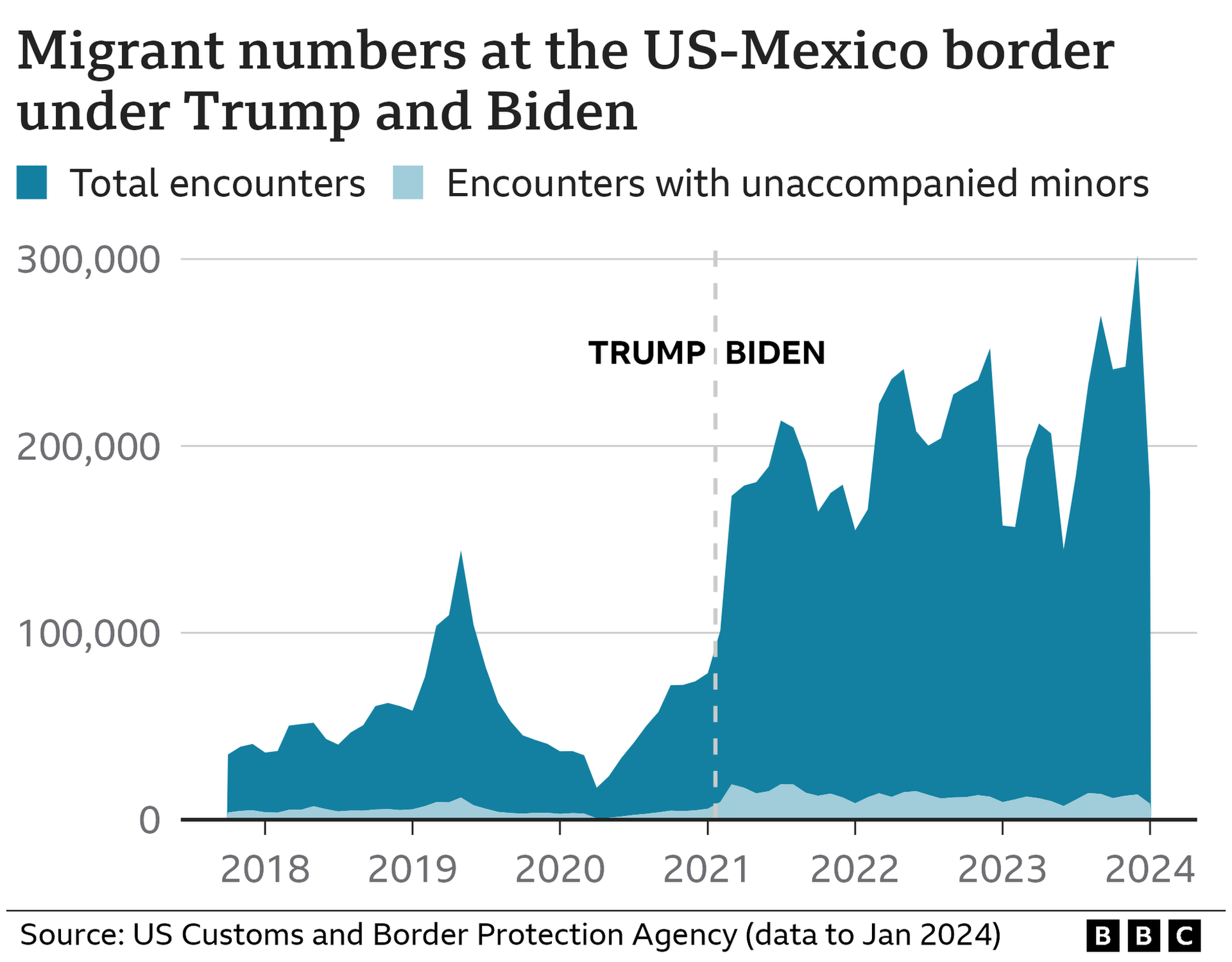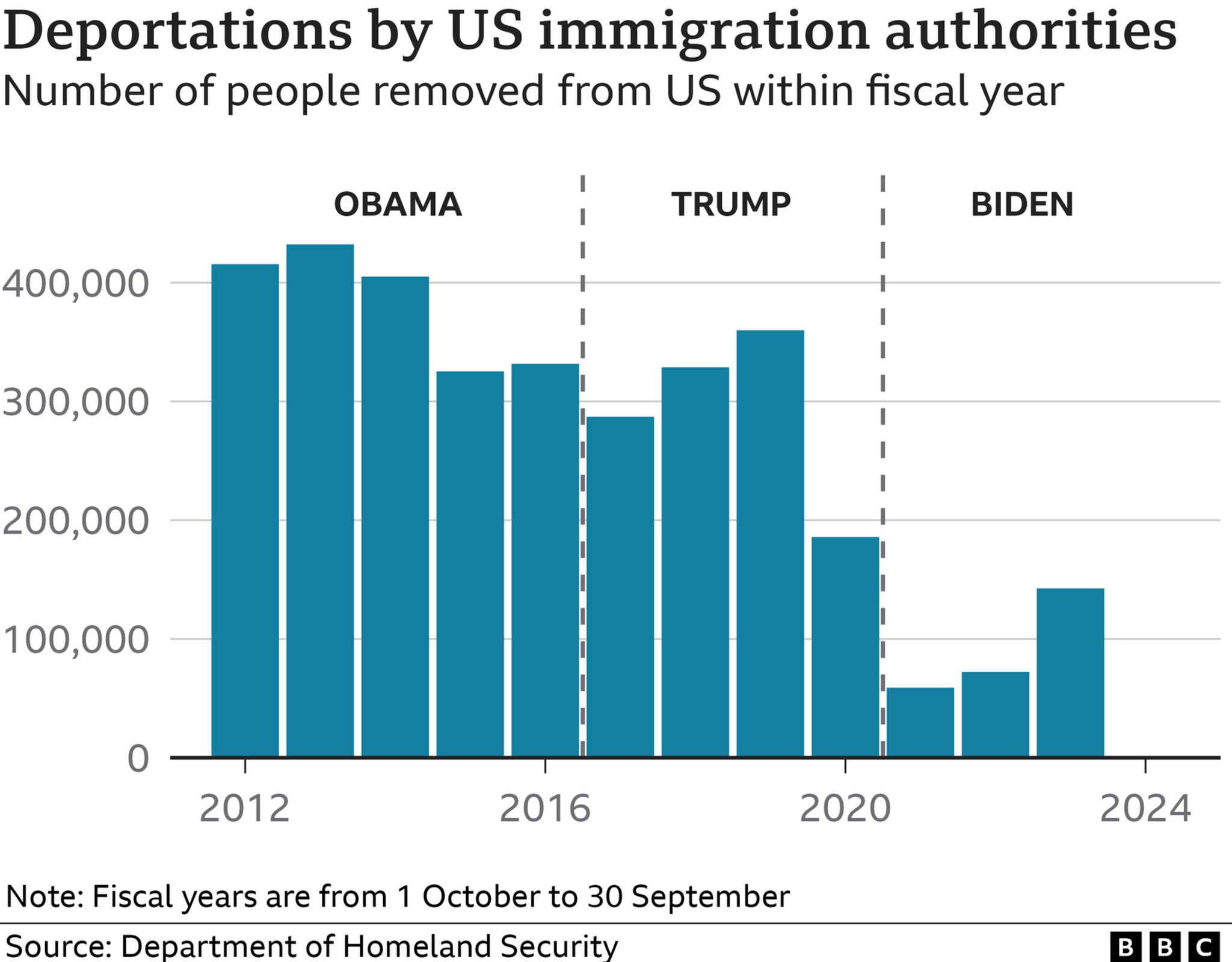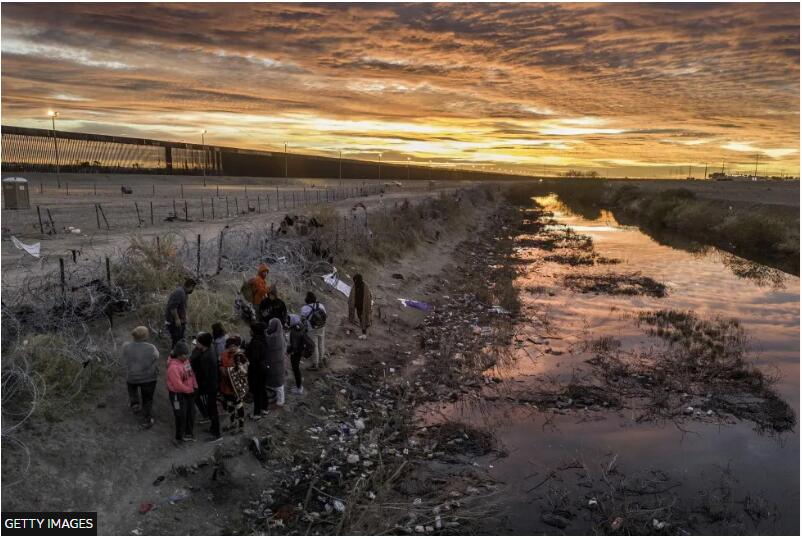Three reasons why so many migrants want to cross from Mexico to US
Migrant arrivals at the border have risen to record highs during President Joe Biden’s administration, a massive political headache for him ahead of the election.
Polls suggest that more than two-thirds of Americans disapprove of Mr Biden’s handling of the issue.
His likely opponent in November’s presidential election, Donald Trump, has repeatedly vowed to restore and expand the hard-line immigration policies of his first term. He has further promised to launch “the largest domestic deportation operation” in US history.
But it’s not just Republicans who are unhappy about the influx. Democratic mayors in cities struggling to cope with the numbers are also making their feelings known.
More than 6.3 million migrants have been detained crossing into the US illegally under Biden, a higher number than under Trump, Obama or George W Bush.
The reasons for the spike are complex, with some factors pre-dating this government and beyond the control of the US. We asked experts what’s going on.
1. Pent-up demand after lockdown
The number began to rise in 2018, largely driven by Central Americans fleeing a series of complex crises including gang violence, poverty, political repression and natural disasters. Detentions fell again in the summer of 2019, which US officials credited to increased enforcement by Mexico and Guatemala.
The most drastic reduction took place in early 2020, when pandemic-era restrictions led to a drastic reduction of over 53% between March and April that year.
Since these measures were lifted in early 2021, the numbers have steadily risen, reaching an all-time high of just over 302,000 in December 2023.

“That’s when we began to see an increase again, primarily of Central Americans after mobility restrictions [there] and across the region began to ease,” said Ariel Ruiz Soto, a policy analyst at the Washington DC-headquartered Migration Policy Institute.
“That’s also when the bigger change happened and we began to see much more diversified flows, starting with Venezuela, but also Colombia, Ecuador and places further away.”
In January 2024, however, the figure plummeted about 50% to 124,220. Border officials attributed the dramatic drop to “seasonal trends, as well as enhanced enforcement efforts”.
Migrants now come from as far afield as West Africa, India and the Middle East.
Of migrants from outside the Americas, the greatest increase comes from China. More than 37,000 Chinese nationals were detained at the US-Mexico border last year, about 50 times the figure from two years ago.
2. Global migration trends
The increases in migrant figures seen at the US-Mexico border seen in the last several years also come at a time when, globally, migration to rich countries is at an all-time high.
Statistics from the Organisation for Economic Co-operation and Development (OECD) released late last year show that 6.1m new permanent migrants moved to its 38 member states in 2022 – a 26% increase over 2021 and 14% higher than in 2019.
The number of people granted asylum in the US doubled in 2022, driven in large part by migrants from Venezuela, Nicaragua and Cuba. The US is second only to Germany now in levels of humanitarian migration.
“We are experiencing displacement around the world at a level never seen in recorded history, and people are turning up at our southern border for a variety of different reasons,” explained Jorge Loweree, managing director of programmes at the American Immigration Council, a Washington-based non-profit and advocacy group.
“There are four failed states in our hemisphere alone.”
3. From Trump to Biden
The switch in the White House in 2021 also contributed, say some experts.
A key message from President Trump, even if it never became a reality, was the building of a border wall and increased deportations.
The headlines created by the separation of children from their detained parents, decried by many as cruel, added to the impression that the US was closing its border.
Under President Biden there was a change of tone and of policy. Deportations fell and “deterrent-focused” policies such as the rapid removal of migrants to Mexico and the building of a border wall ended.
Migrants were paroled into the US to await immigration court dates – a process which can often take years.

People trying to cross the border during this time told the BBC they thought that entering and staying in the US was going to be easier now. And human smugglers took advantage of a change in presidency to create a sense of urgency among migrants that they should hurry to the border.
“Part of it is that they think they can just come. I think that’s just what they’re being told,” said Alex Cuic, an immigration lawyer and professor at Case Western Reserve University in Ohio.
“They feel like there’s a pathway to come here,” he added. “It’s almost like an invite.”
Conversely, some immigration activists have criticised the Biden administration and US lawmakers from both parties for failing to pass meaningful immigration reform.
The last major overhaul of the system was more than 30 years ago and now the cross-party bill presented to Congress this week looks doomed due to Republican opposition.
